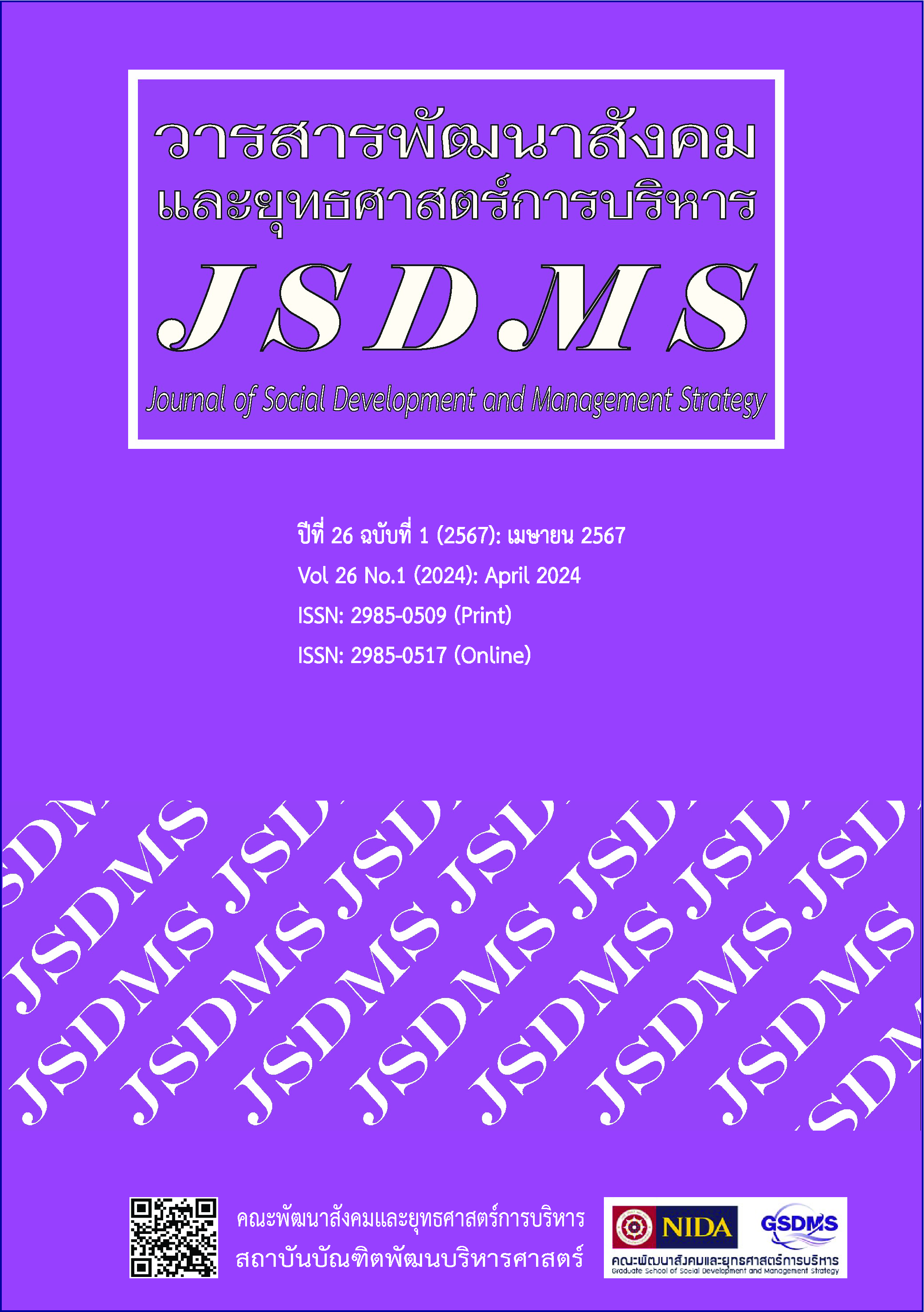Efficient Leadership and Strong Group Work: How Do the Leaders of Kokmueng Community Incorporate Sufficiency Economy’s Experiences into their People’s Everyday Practices?
Main Article Content
Abstract
This paper examines determinants that help the Kokmueng community, Songkhla province and how they contribute to the incorporation of Philosophy of Sufficiency Economy (PSE) into people’s everyday practices. Using three groups of key informants to contribute to community development selected by snowball and purposive sampling, the research analysed the data through inductive interpretation and found community insights into some important issues that helped to make the community successful in being a Community of Sufficiency Economy (CSE). The first was that the Kokmueng community had an efficient leader or Phuuyaibaan who built better community human capital. The second was that the community had a committee member that created a tool for development communication. The third was that the community incorporated PSE-related group work as a means to shape people’s mentality, contributing to the incorporation of PSE experiences into people’s everyday practices. This made the community into a CSE.
Article Details

This work is licensed under a Creative Commons Attribution-NonCommercial-NoDerivatives 4.0 International License.
References
Kowit Phuangngam. (2010). Community and local self governance [In Thai]. Bangkok: Bophit Press.
Nakarait Napattalung, & Yuwat Wuttimatee. (2012). Six characteristics of charismatic leadership in affecting on the philosophy of sufficient economy [In Thai]. Silpakorn University Journal, 32(2), 131-143.
Noy, D. (2011). Thailand’s sufficiency economy: Origins and comparisons with other systems of religious economics. Social Compass, 58(4), 593-610.
Office of the National Economic and Social Development Board. (2018). The National Economic and Social Development Plans. NESDPs 1st-12th. Retrieved from http://www.nesdb.go.th/main.php?filename=develop_issue
Parichat Walaisatien. (2003). Processes and techniques for development practitioners (Research Report) [In Thai]. Bangkok: SRS.
Prasopsuk Songphasuk & Niswan Pitdamrong. (2011). From the past to the future of the promotion of the sufficiency economy’s philosophy [In Thai]. The Socioeconomic Journal of the Office of the National Economic and Social Development Board, 48(1), 15-18.
Priyanut Piboolsravut. (2004). Research note: Sufficiency economy. ASEAN Economic Bulletin, 21(1), 127-134.
Public Policy Strategy Office. (2011), The practical application of the sufficiency economy’s philosophy [In Thai]. The Socioeconomic Journal of the Office of the National Economic and Social Development Board, 48(1), 9-17.
Thanwa Jitsanguan. (2009). Study on sufficiency economy movement: Lessons learned from 40 selected villages [In Thai]. Proceedings of 47th Kasetsart University Annual Conference: Economics and Business Administration. (pp. 169-178). The Thailand Research Fund, Bangkok (Thailand).
Wanasilp, W. & Tangvitoontham, N. (2015). The relationship between the understanding of philosophy of sufficiency economy and the living standard: the case study of a sufficiency economy community in Lower Northern Region of Thailand. International Journal of Business and Economic Development, 3(1), 87-95.


